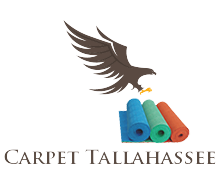Submitted Photos
Chautauqua Lake Central School District was recently designated as a Schoolyard Habitat. The National Wildlife Federation has recognized the school for its commitment to providing a sustainable habitat for local wildlife and an educational opportunity for students in the district. Pictured are Chautauqua Lake Central School students with Superintendent Dr. Josh Liddell.
Chautauqua Lake Central School was recently certified by the National Wildlife Federation as a new Schoolyard Habitat in Mayville.
The district is the first in Chautauqua County to achieve the designation. The school joins thousands of schools across the nation that have taken efforts to transform their schoolyards into habitats that support a thriving wildlife population.
The National Wildlife Federation has helped schools create Schoolyard Habitats since 1996. The goal has been to either create or restore wildlife habitats on school property that also provides “outdoor classrooms” that can stimulate enhanced educational experiences.
To be eligible for the National Wildlife Federation’s designation of the school as a Schoolyard Habitat, Chautauqua Lake Central School had to meet certain criteria.
Pictured are Chautauqua Lake students next to the sign now designating the school as an official Schoolyard Habitat in Mayville.
“In order to receive this distinction Chautauqua Lake had to show that its grounds had essential elements needed by all wildlife, such as natural food sources, clean water and cover,” Jennifer Davis, public relations specialist, said.
In addition to providing the necessary elements for a thriving wildlife population, the designation of the school’s property as a Schoolyard Habitat reflects the outdoor educational component that is suitable for students to engage in a hands-on learning experience.
“We are excited to have another school join our growing list of more than 5,000 certified Schoolyard Habitats,” Liz Soper, director of K-12 programs for National Wildlife Federation, said. “Kids can now personally experience nature through hands-on learning in an outdoor environment.”
The certification of the district also establishes the school as part of the Million Pollinator Garden Challenge, which is a national effort to restore habitats for pollinators.
Davis explained that the school district is demonstrating a deliberate effort to protect wildlife and make a positive impact in Chautauqua County.
While the district is celebrating its recognition by the National Wildlife Federation, Davis said the school has only completed the first phase of its plan.
“This is phase one in Chautauqua Lake Central School’s commitment to sustainably and responsibly teaching children about how to help the environment and communities around us,” she said.
Davis said the district’s first phase was aided by the help of Chautauqua Watershed Conservancy Conservationist, Carol Markham, and Royal Fern Nursery and community members, Jack and Diane Voelker.
“Students in grades pre-k through six worked to establish food, water, cover and places to raise young for native flora and fauna,” she said.
As part of the Schoolyard Habitat, the school has a garden that includes sycamore trees, milkweed, elderberry bushes, and a bluebird house that was built by the students. Davis said students are currently working on a way to prevent the wildlife’s water resources on school property from freezing in the winter. As part of this project, students are researching potential solar solutions and working on an implementation that would work for the school.
“It’s been inspiring to see students take ownership over this process.” Elementary Principal Megan Lundgren said. “By exploring the nature that surrounds us, students have learned how natural elements thrive and how they can positively influence the local habitat.”
The second phase of the Schoolyard Habitat project will provide students with the opportunity to take a leadership role in positively impacting the environment. Davis said the second phase of the project will involve student-led development and integration of eco-school practices in the school’s learning environment.
“By fostering student voice and choice in the process students will engage in multiple disciplines as they explore project based learning and real-world problem solving,” she said.
Fawn Schuster, makerspace and enrichment teacher, said the school hopes to encourage students to explore the possibilities of “Green S.T.E.A.M. and other educational projects that follow the guidelines of the United Nations Sustainable Development Goals.
“As a school we are excited to challenge our students to think global and act local,” she said. “I am grateful for the work done by our team so far.”
Schuster also highlighted the impact of having staff involvement in the project. She explained that Chautauqua Lake teachers Denny Morrison, Shari Tennies and Reid Bland assisted with the project by sharing their passion for outdoor activities and wildlife.
Dr. Josh Liddell, superintendent, explained that the school district is “fortunate” to have roughly 135 acres of property. He believes the Schoolyard Habitat provides students with unique learning opportunities.
“We feel strongly that expanding classroom instruction into an outdoor environment is beneficial for our students on a variety of fronts,” he said. “There has been a sense of excitement surrounding this specific project and we look forward to seeing how the project base elements embedded in phase two enhances our students overall learning experience.”
The Chautauqua Watershed Conservancy recently celebrated news of the school’s designation as a Schoolyard Habitat through its Facebook page.
“Congratulations to Chautauqua Lake Central School on becoming a Certified Schoolyard Habitat with the National Wildlife Federation,” they said. “This certification, a first for a school in Chautauqua County, also moves CWC one site closer to certifying Chautauqua County as an NWF Wildlife Federation Community Habitat.”
Those interested in learning how to have a school, business, or property designated as a certified wildlife habitat can visit chautauquawatershed.org/wildlife-habitat-project.











